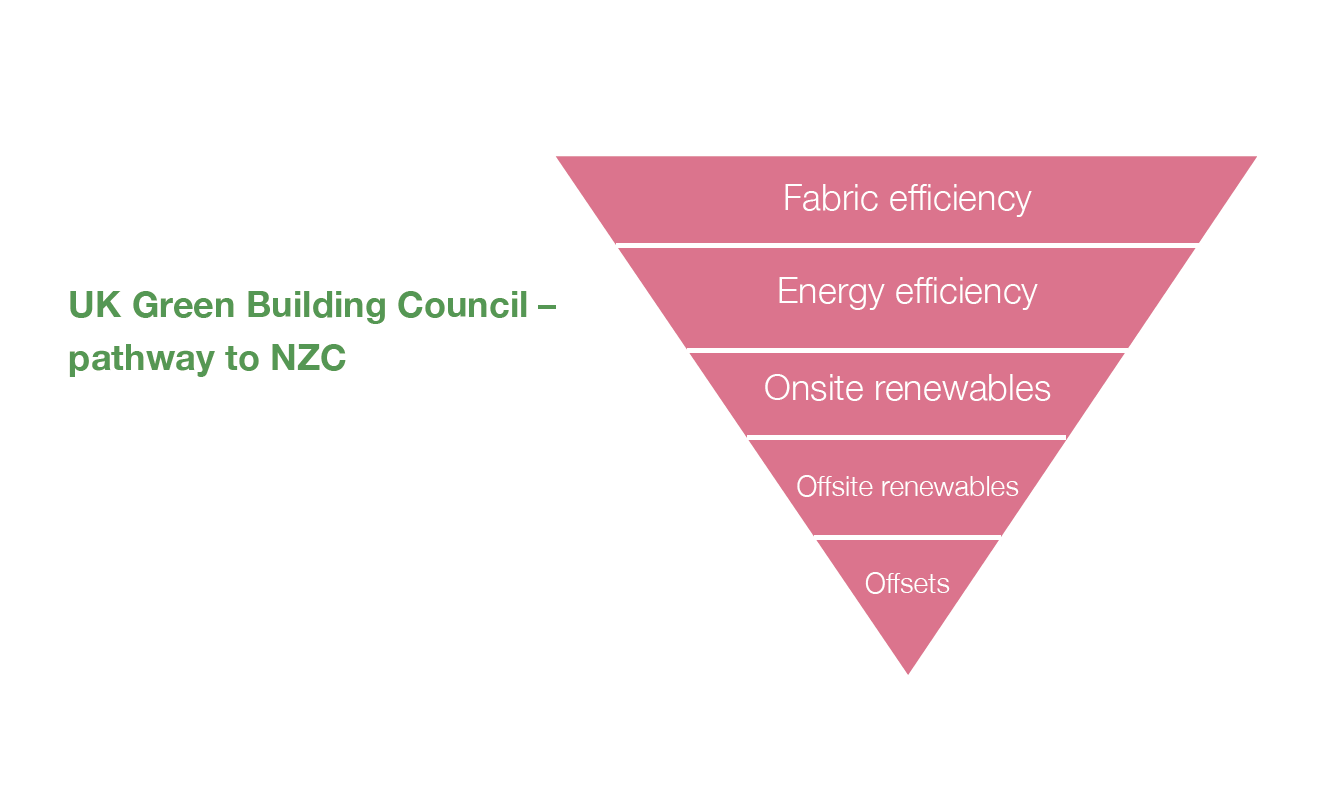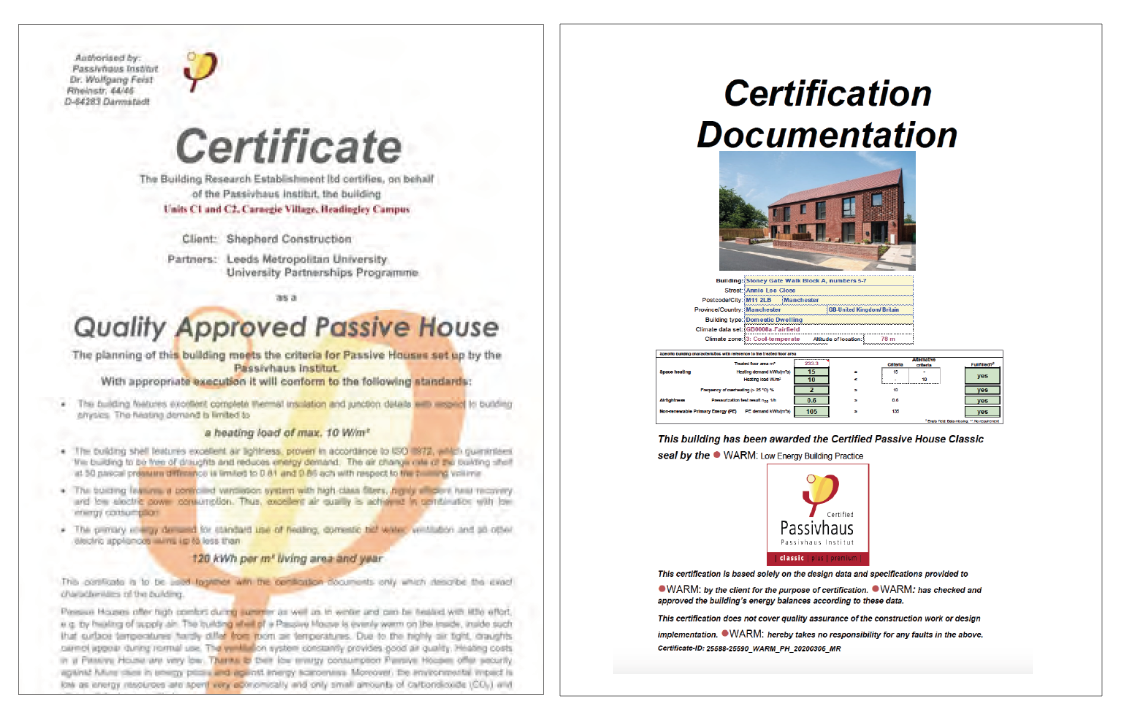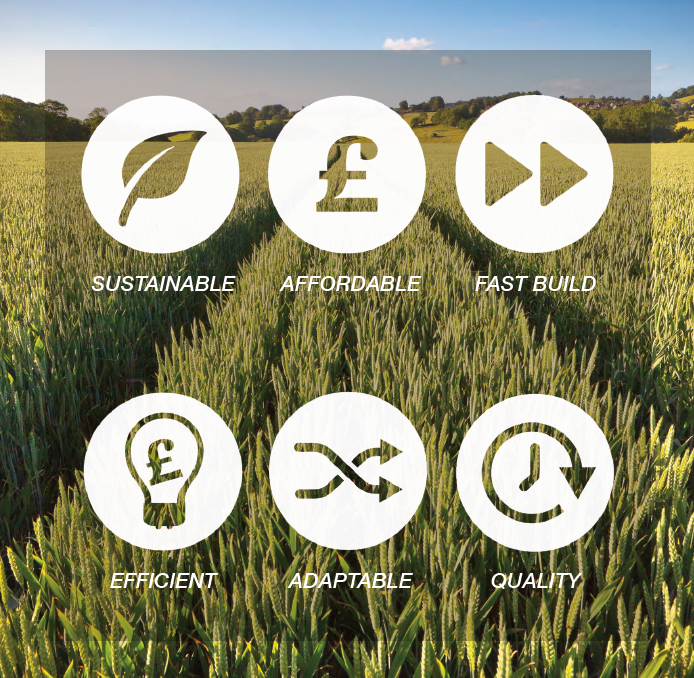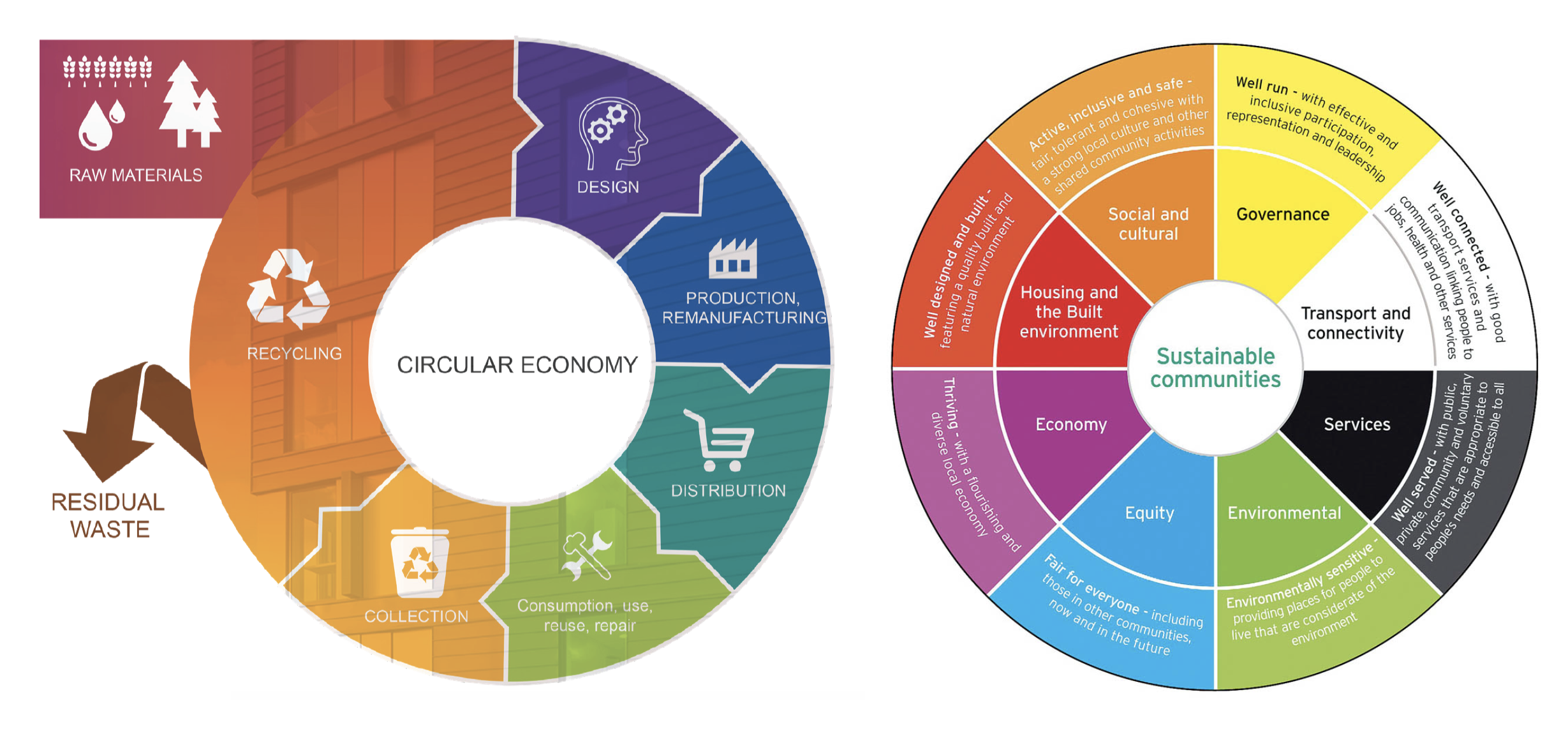Sustainable Design
The Eco-Res design approach is based on achieving highly sustainable, low energy buildings at an affordable cost. We adopt a truly holistic approach to sustainable design, considering measures which affect sustainability at the basic design level and throughout the design process.
The issues of climate change is bringing about a transformation in the design and energy performance of buildings. Nearly 40% of all carbon emissions are derived from the buildings we live in and use.
International agreements (Paris Climate Accord 2015), and National legislation is establishing statutory requirements for low energy / low carbon buildings and target dates for carbon reduction measures.
At more local level, City councils are adopting more challenging carbon reduction targets, for example – Manchester has set out to become a ‘Net Zero Carbon City’ by 2032. To achieve this, amongst many other measures, the energy performance of new buildings will be controlled by local planning legislation.
(Refer London Energy Transformation Initiative)
Net Zero Carbon
The Eco-Res approach to the design of low energy buildings has always been that of ‘fabric first’. The most cost-effective way to achieving a low energy building is in making the building envelope highly insulated and airtight. A passive approach to building physics.
This is the strategy adopted by the UK Green Building Council – pathway to NZC.
The UK GBC definition of net zero carbon is that generally accepted, being net zero carbon operational energy and net zero carbon embodied energy. Whole life net zero carbon.



Passivhaus
Forthcoming legislation includes the Future Homes Standard 2020 – an update to part L of the Building Regulations. This document is in consultation at present but the two performance specifications for new homes are:-
- A building fabric effectively designed to Passivhaus standards.
- A reduced building fabric performance offset by the inclusion of renewable energy sources.
Once Part L passes into law, all new homes will be designed to this standard. Eco Res have been advocates of the Passivhaus design / energy assessment method and the Directors were responsible for the design of the first accredited Passivhaus scheme in England over 10 years ago. Carnegie Village, Leeds Metropolitan University.
Importantly the Passivhaus design assessment method generates a realistic prediction of energy in use, whereas it is well known that the SAP assessment used for statutory compliance creates a ‘performance gap’ between predicted and actual energy use. Similarly, with non-domestic buildings, CIBSE TM54 generates more realistic energy use predictions than SBEM assessments. It is extremely important to understand this ‘performance gap’ and the cost in use implications.
Value
Delivering sustainable, low energy buildings reduces operating costs over the life of the building. On student residential schemes we can demonstrate reduced utility costs in the order of 45% compared to Building Regulation compliant schemes, at a lower overall construction cost. Applying a yield to this saving generates a significant increase in building value.
It is also likely that sustainable, low energy buildings will be valued more highly as Green Mortgages and funding markets develop.
(refer: GRESB. General Real Estate Sustainability Benchmark)

Circular Economy
The purpose of the circular economy is to use resources and materials in an efficient way and to eliminate waste. In nature there is no waste – everything is recycled.
Assessing the whole life carbon impact of buildings presumes a proportion of recycling of materials at a buildings end of life.
Resource efficiency is considered as a key part of the detail design process – how little material can we use. Material choices are made in the context of how easily they may be disassembled at end of life. Non composite, natural materials are used wherever possible.
Through the reuse of building materials, the dependency on virgin resources, sending waste to landfill, will be discouraged resulting in lower carbon emissions and a reduction in the need for any carbon offsetting.

- Eco-Res at the forefront of sustainability, affordable design and our work has been recognised by design and sustainability awards.
Eco-Res are accredited to ISO 14001, the benchmark used worldwide for environmental management systems.
